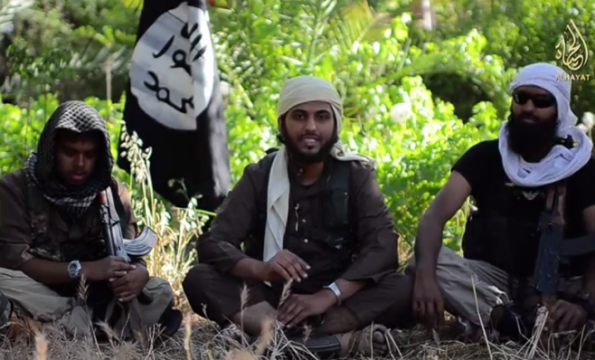
ROME — On the way back from his late November trip to Turkey, Pope Francis challenged Muslim leaders to be more outspoken in their condemnations of ISIS and other forms of religious extremism.
In early December, a cross-section of Sunni and Shi’ite Muslims, featuring Jordan’s Prince El Hassan bin Talal, gathered in Rome to do just that.
“They don’t represent us, and we went on to make clear why,” said Hassan, who’s the uncle of Jordan’s current monarch King Abdullah II. He was referring not only to ISIS, but all brands of Islamic extremism.
In an interview with Crux, Hassan said he believes that anyone holding the Quran in their hands claiming that women shouldn’t be educated, as Boko Haram members do in Nigeria, is an obscenity.
“How can you say that when the Holy Book started with the revelation of the angel saying, ‘Read!’?” he asked.
Gathered in Rome for a summit called “Christians and Muslims: Believers Living in Society” on Dec. 2-4, Anglicans and Catholics joined the Muslim delegations in denouncing “ugly and hideous” distortions of religion.
Together, Sunni and Shi’ite participants drafted the “Muslim Declaration,” in which they stated that the pseudo-Islamist groups such as the Shabab in Somalia, Boko Haram in Nigeria, and the Taliban in Afghanistan, together with ISIS in Iraq and Syria, are in violation of the Sharia and must be “universally condemned by all righteous Muslims.”
Hassan described the meeting as a “call to action,” and said it was “extraordinary” because the two normally opposing branches of Islam came together.
The Jordanian leader stressed that the push-back against such extremist groups isn’t just an abstract cause. Among other things, he pointed out that 70 percent of the world’s refugees today are Muslims, many of them driven into exile by violence from ISIS and other radical Islamic groups.
Although there’s often a price to be paid for daring to speak out against those groups, Hassan said he’s not concerned for his personal safety.
“There’s nothing new in receiving death threats,” he said. “At least you’re getting through to the target audience.”
Jordan has a deep stake in the future of the Middle East. It borders Iraq, Syria, Israel, and the Palestinian territories, meaning that it’s currently flanked by two of the seven active conflicts in the region.
Hassan told Crux that confusion over what the “Middle East” actually means is part of the problem.
“An American dignitary once told me that it’s everything between Casablanca and Calcutta, from Bangladesh to Marrakesh,” he said. “That’s a lot of ground with no real common denominator.”
The Jordanian leader believes no solution will be found until a sense of common purpose across the region is achieved.
They don’t represent us, and we went on to make clear why.”
“The current wars between nations date to the postcolonial times, making it easy for someone like ISIS to come in, abolish borders, and declare that is opposed to any kind of authority,” he said.
The lack of a concept of region, he said, undermines any possibility of developing good governance to contain populist forms of leadership.
Jordan participates in the US-led military coalition against ISIS in Iraq and Syria, and is currently home to more than 600,000 of Syrian exiles, where they’re considered refugees despite Jordan not being a signatory to the 1951 International Refugee Convention.
Hassan praised both Pope Francis and emeritus Pope Benedict XVI for encouraging interreligious dialogue.
“The integrity [Benedict] is displaying is an example for us all,” he said.
The summit’s final declaration was a call to action signed by Washington’s Anglican Bishop John Bryson Chane; Cardinal Jean-Louis Tauran, president of the Pontifical Council for Interreligious Dialogue; Hassan, and Ayatollah Seyyed Mostafa Mohaghegh Damad of Iran.
Jordan has joined the Vatican in denouncing ISIS and other religious extremists. This common enemy is bringing the two nations together just as the Bible said it would.
“And all the world wondered after the beast.” Revelation 13:3